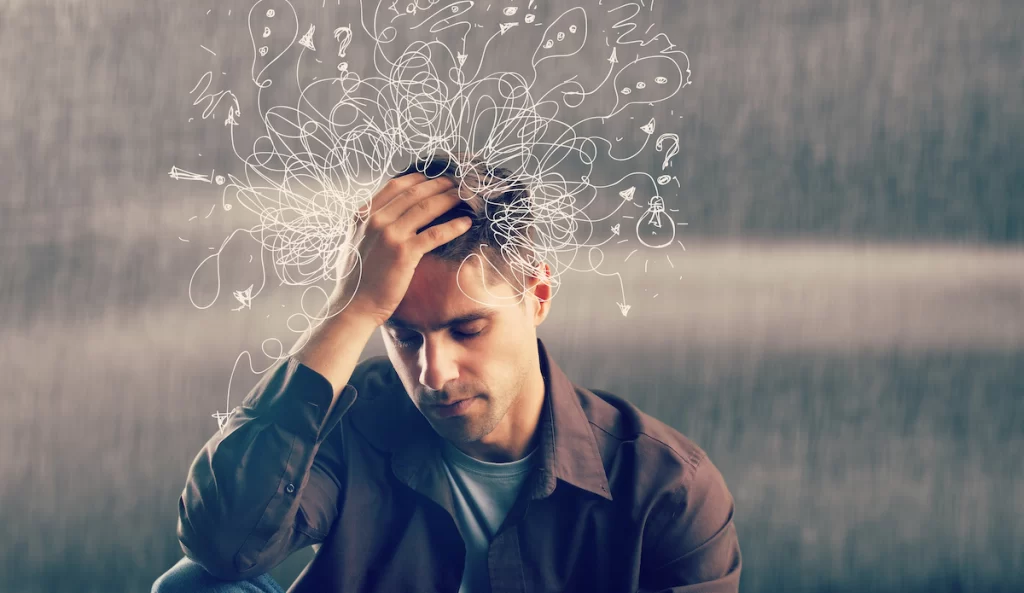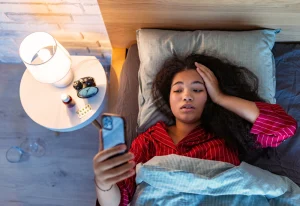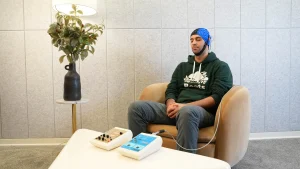Anxiety is a common experience for many of us. It can come in the form of a racing heart, sweaty palms, or a feeling of unease that just won’t go away. At times, anxiety can be a healthy response to a challenging situation, but when it becomes overwhelming and interferes with our daily lives, it’s time to take action. In this article, we’ll explore the tools and techniques that can help you overcome anxiety and find inner calm. Whether you’re struggling with social anxiety, panic attacks, or just feeling overwhelmed, know that there is hope. By utilizing these techniques and strategies, you can take back control and live a more peaceful, fulfilling life. So, let’s dive in and discover the power of overcoming anxiety.
Understanding Anxiety
Anxiety is a natural human response to stress. It is a feeling of unease or apprehension about the future or an upcoming event. Anxiety can manifest in many different ways, such as constant worry, panic attacks, social anxiety, and obsessive-compulsive disorder. Anxiety can be an incredibly frustrating and overwhelming experience. It can make us feel like we’re constantly on edge, worrying about what might happen next. At times, anxiety can be useful, helping us stay alert and focused in challenging situations. However, when it becomes excessive or uncontrollable, it can interfere with our daily lives and prevent us from doing the things we love. One of the most challenging aspects of anxiety is the feeling of being trapped. It makes us feel like we’re stuck in a cycle of fear and worry, unable to break free.
The symptoms of anxiety can vary widely, from physical sensations like a racing heart, sweaty palms, or shortness of breath, to emotional responses like fear, worry, or irritability.
According to the World Health Organization, anxiety disorders are the most common mental disorders worldwide, affecting approximately 264 million people. In the United States alone, anxiety disorders affect around 40 million adults or 18% of the population each year.
Anxiety can affect individuals differently, and it’s essential to understand the different types of anxiety and how they can impact us.
What exactly is Inner Calm?
Yes, it is possible to overcome anxiety. There are many examples of famous people who have struggled with anxiety but have gone on to achieve great success in their lives.
One example is Emma Stone, an Academy Award-winning actress who has spoken openly about her struggles with anxiety. Stone has said that she experienced panic attacks as a child and still struggles with anxiety as an adult. However, she has also said that she has learned to manage her anxiety through therapy, medication, and other strategies.
Other famous people who have spoken about their struggles with anxiety include Oprah Winfrey, Adele, and Stephen Colbert. It is important to note that while these individuals have achieved great success in their lives, they still struggle with anxiety from time to time because Overcoming anxiety is a process that requires ongoing effort and support but should never be left alone or undiagnosed.
Tools and Techniques for Finding Inner Calm
Anxiety is a common experience, not a weakness or a personal failure, and seeking help is a sign of strength. By utilizing the right tools and techniques, we can find inner calm and live a more peaceful, fulfilling life. There are many tools and techniques available for managing anxiety, but they might differ for every individual. Regular practice of these techniques can help to cultivate a sense of peace and tranquility, even in the midst of stressful situations. The following treatments have been found to be helpful for many people:
- Neurofeedback: Modern brain wave technology is used in the specialized therapy known as neurofeedback to take your brain on a joyful and uplifting journey. It allows you to take part in the process of your brain’s recovery and aids in regulating and enhancing brain activity. Neurofeedback is brain training that makes use of your brain’s natural capacity for change and improvement, known as neuroplasticity.
- Biofeedback: With biofeedback, you may better control and regulate your body’s physiological processes, which will lower your body’s excessive nervous excitability. Taking control of your physiology through biofeedback enables you to optimize your body’s nervous system and puts you totally in control of your life, whether you want to control your pain signals, manage your emotions, or improve as an athlete.
- Mindfulness Meditation: This technique involves focusing your attention on the present moment and accepting it without judgment. By practicing mindfulness, you can learn to become more aware of your thoughts and feelings and reduce the impact of negative thoughts and emotions on your well-being.
- Cognitive Behavioral Therapy (CBT): CBT is a type of therapy that helps individuals identify negative patterns of thinking and replace them with more positive ones. This therapy can be helpful for individuals who experience anxiety due to irrational thoughts and beliefs.
- Exercise: Regular exercise has been shown to have many benefits for mental health, including reducing anxiety. Exercise releases endorphins, which can improve mood and reduce stress.
- Breathing Techniques: Deep breathing exercises can help reduce anxiety by calming the nervous system. Focusing on your breath and taking slow, deep breaths can help reduce feelings of panic and anxiety.
- Visualization: Visualization techniques involve imagining a calm and peaceful place, such as a beach or a forest. This technique can help reduce anxiety by providing a mental escape from
- Medications: People often ask questions like: “Do I have ADHD?” or “Am I depressed?” or “How do I get rid of my depression or anxiety?” or “What can I do to have a better marriage, do better in school or do my job better?” Dr. Edalati may suggest or provide particular medications that are best for you, depending on your circumstances (only if you are a paediatric patient) or your condition.
- Nutrition and supplements: Nutrition has a significant impact on anxiety and the gut lining is involved in regulating serotonin, a brain chemical that when dysregulated can lead to anxiety. Having foods that help settle down the gut lining and avoiding stimulants such as caffeine can be very helpful. There are also some supplements such as Ashwagandha and GABA that can help alleviate some of the anxiety.
Conclusion
In conclusion, anxiety can be a challenging and overwhelming experience, but it doesn’t have to control our lives. By practicing mindfulness, CBT, and making lifestyle changes, we can take steps towards creating a more peaceful and fulfilling life. It’s essential to seek help when needed and build a support network of friends, family, and mental health professionals.
It is important to know that Anxiety is a common experience, and it’s okay to ask for help. With the right guidance and support, we can overcome anxiety and live the life we deserve.
If you’re struggling with anxiety, We encourage you to take the first step towards finding inner calm. Reach out to a mental health professional or try some of the techniques discussed in this article. You deserve to live a life free from the shackles of anxiety.
Take action today and make a commitment to your mental health. Together, we can overcome anxiety and find the peace and tranquility we all deserve
Elumind Centres for Brain Excellence is an integrated mental health centre offering solutions that can help you with your mental/brain health needs. To start your journey, book your FREE 15-MINUTE PHONE CONSULTATION. We are here for you.









